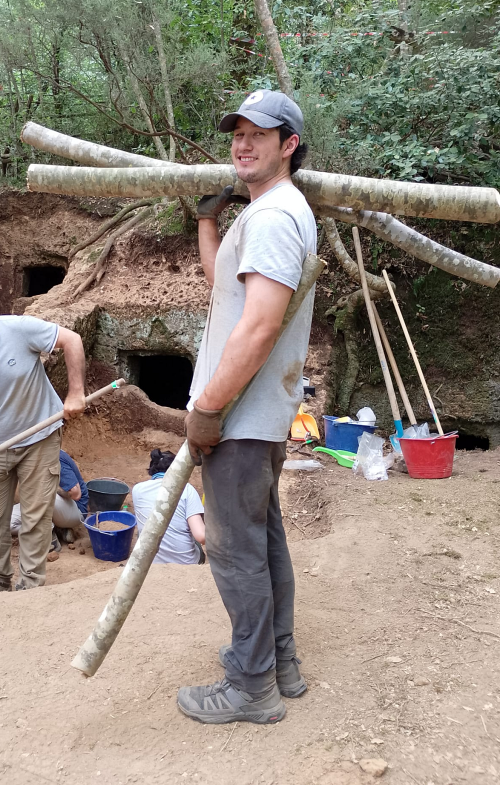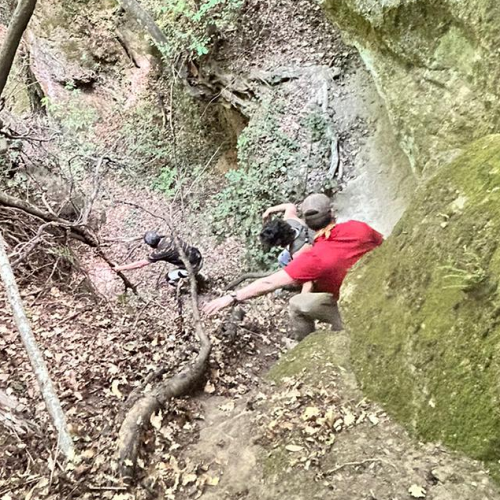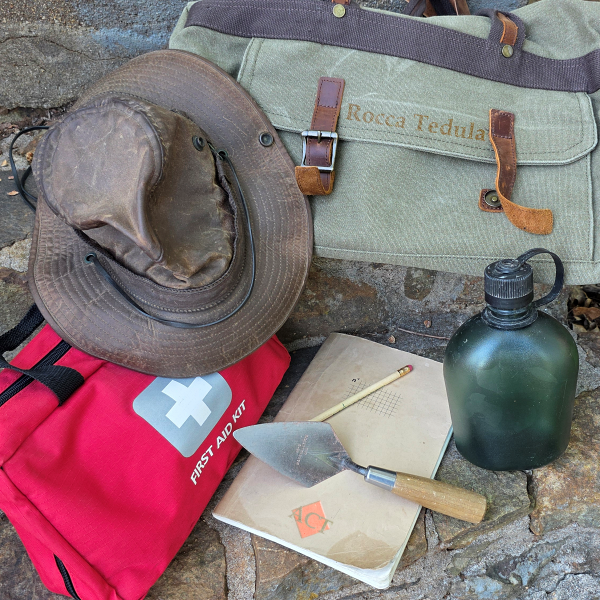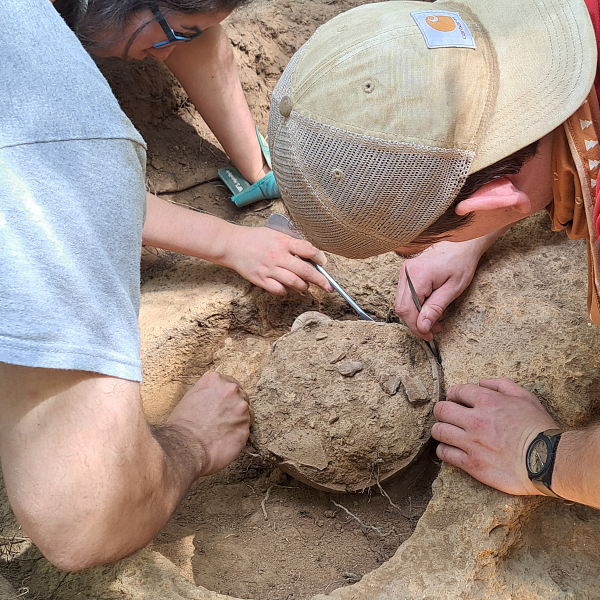Safety, Health, and Equipment
Ready to gear up for an archaeology adventure? Please adhere to our safety and medical requirements, and review the recommended equipment list below.
Safety First!
Field work, activities, and cultural trips will comply with the highest safety standards. All ACT’s activities follow the rules prescribed by the Legislative Decree no. 81 of 9 April 2008, also known as “Testo unico in materia di salute e sicurezza sul lavoro”, and the related corrective measures, in accordance with dispositions of the Cultural Heritage Office of Tuscany’s.
BISA will supply all students with appropriate safety devices. However, please see the equipment list below for additional recommendations.

International Medical Insurance Requirement
All participants must have a valid international medical insurance policy that is in effect for at least the entire duration of their stay in Italy.
Health Standards and Required Medical Consultation
Participation in BISA requires intense physical activity, and the local weather is usually hot and sunny. Temperatures can exceed 35° C (95° F).
It is mandatory that all participants consult their doctor to confirm that they will be able to endure the demands of working outdoors for a full day, including using hand tools, hiking in difficult terrain and woodlands, and carrying loads and equipment.
Participants will be hiking up and down hills, kneeling, crouching, bending, lifting, shoveling, pushing wheelbarrows full of dirt, using yard tools, carrying gear, and spending extended periods of time in a squatting position or on hands and knees. Participants should be able to lift at least 25 Kg (55 lbs.).


All participants accepted into the program must provide a doctor’s note stating that they are in good mental and physical health and are able to participate in the archaeology field school safely. Participants with medical conditions or special needs must provide a specialist’s note addressing the specific condition or concern. To guarantee safety and proper intervention in case of an emergency, physician’s and specialist’s notes must include medical history information.
All medical and health information will be treated with absolute confidentiality and will not be disclosed to any third party unless required to safeguard the participant’s health.
Required Vaccinations
Given the potential exposure to pathogens in the soil, students must have had a tetanus vaccination or booster within the past ten years. No other vaccinations are required.
Clothing and Equipment
Weather is typically hot, clear, and sunny. Infrequent rain showers are possible, and sometimes evenings can be cooler (16°C or 61°F). Pack clothing appropriate for these conditions.
Remember to bring:
- Comfortable, broken-in shoes or light boots for walking and trekking
- All personal medications (if you have prescription medication, it is a good idea to keep a copy of your doctor’s prescription with you, and to verify the requirements for carrying the medication on international travel).
- Basic school supplies
Clothes for Field Work
Clothes worn in the field will become dirty, stained, or damaged.
- Durable work gloves (required)
- Comfortable, flexible, and durable long pants (shorts are not allowed in the field)
- Shirts suitable for working outdoors all day (having a lightweight long-sleeve shirt with you for protection from the elements is a good idea)
- Ankle-high hiking or work boots with a steel or composite protective toe cap
- Hat (wide brim recommended)
- Bandanas (useful for sun protection, cleaning sweat and dirt, or for dust protection)
- Good socks:
Lightweight, good-quality merino wool socks are are an excellent option for comfort, durability, and moisture management. Two good brands in the U.S. are Darn Tough and Farm to Feet.
Archaeology Tools and Field Gear
- Archaeology or masonry pointing trowel (Optional):
Although bringing your own trowel is optional, the trowel is an archaeologist’s most essential tool. If you intend to continue your studies and career in archaeology, you should eventually acquire one. A Marshalltown London-style trowel is a well-known and generally accepted option for archaeologists. - Field journal and writing supplies
- Sunscreen and insect repellent
- Water bottle, canteen, or flask
- Backpack
- Cell phone/Digital camera (one equipped with LiDAR sensors is a bonus)


